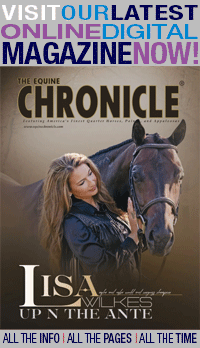Severe Summer Weather is Here, USRider’s Top Tips For Traveling With Trailers
The severe summer weather season is upon us, and when things get rough, we’re reminded to DUCK:
· D – Go DOWN to the lowest level.
· U – Get UNDER something.
· C – COVER your head.
· K – KEEP in shelter until the storm has passed.
Just how do you DUCK if you’re on the road and threatened by bad weather, including hail, heavy rain, thunderstorms and tornadoes? Getting to safety could be particularly tricky when you’re on the road hauling your horses.
USRider recommends that you check tire pressure before each trip. This is especially important with temperature changes. If you are traveling from a warm climate to a cold climate, air pressure in your tires will drop. On the other hand, when traveling from a cold climate into a warm climate, the air pressure will rise.
Another tip is to drive extra cautiously. Even in light snow or rain, slow down to a safer speed and allow greater following distance in front of your rig. Drive defensively, turn on your hazard lights, and, if the precipitation or wind gets too high that you cannot see, pull way off the road or preferably at the next parking area available and wait it out.
When faced with the possibility of a tornado, NEVER attempt to take shelter under an overpass or pull in to the nearest gas station. Instead, find a route that will lead you to a solid building that you can take shelter in. Now, we all know this is hard when you are driving in a remote area. Be sure to stay updated on weather reports and plan accordingly. If you notice a pattern as to what time a storm usually hits the area you are heading, try to plan around it. This may delay your arrival time, but safety is all that matters.
If you find yourself in a real weather emergency and need to pull off to the side of the road, ALWAYS keep your horses in the trailer. The horses will be safer there rather than being tied to the outside of your trailer. Tying them outside will actually increase the chance of injury versus being inside the trailer where they are shielded from hail, rain or flying debris.
In heavy rain storms, you can follow similar rules as you would if you were driving in snow. Roads will be slick. When there are large volumes of water on the road, your chance of hydroplaning increases. So, what if you are traveling at high altitudes where rain is present? If you stay overnight and plan to leave early the next morning, be careful! Temperatures drop immensely over night at high altitudes. This causes any excess water on the road to freeze and become a sheet of black ice.
Through its Equestrian Motor Plan, USRider provides emergency road service to its Members in the lower 48 states as well as Alaska and Canada. Designed for those who travel with horses, USRider provides emergency roadside assistance and towing services, along with other travel-related benefits geared especially toward horse owners, such as towing up to 100 miles plus roadside repairs for tow vehicles and trailers with horses, emergency stabling and veterinary referrals.
For more information about USRider, visit the USRider website at http://www.usrider.org or call (800) 844-1409.











